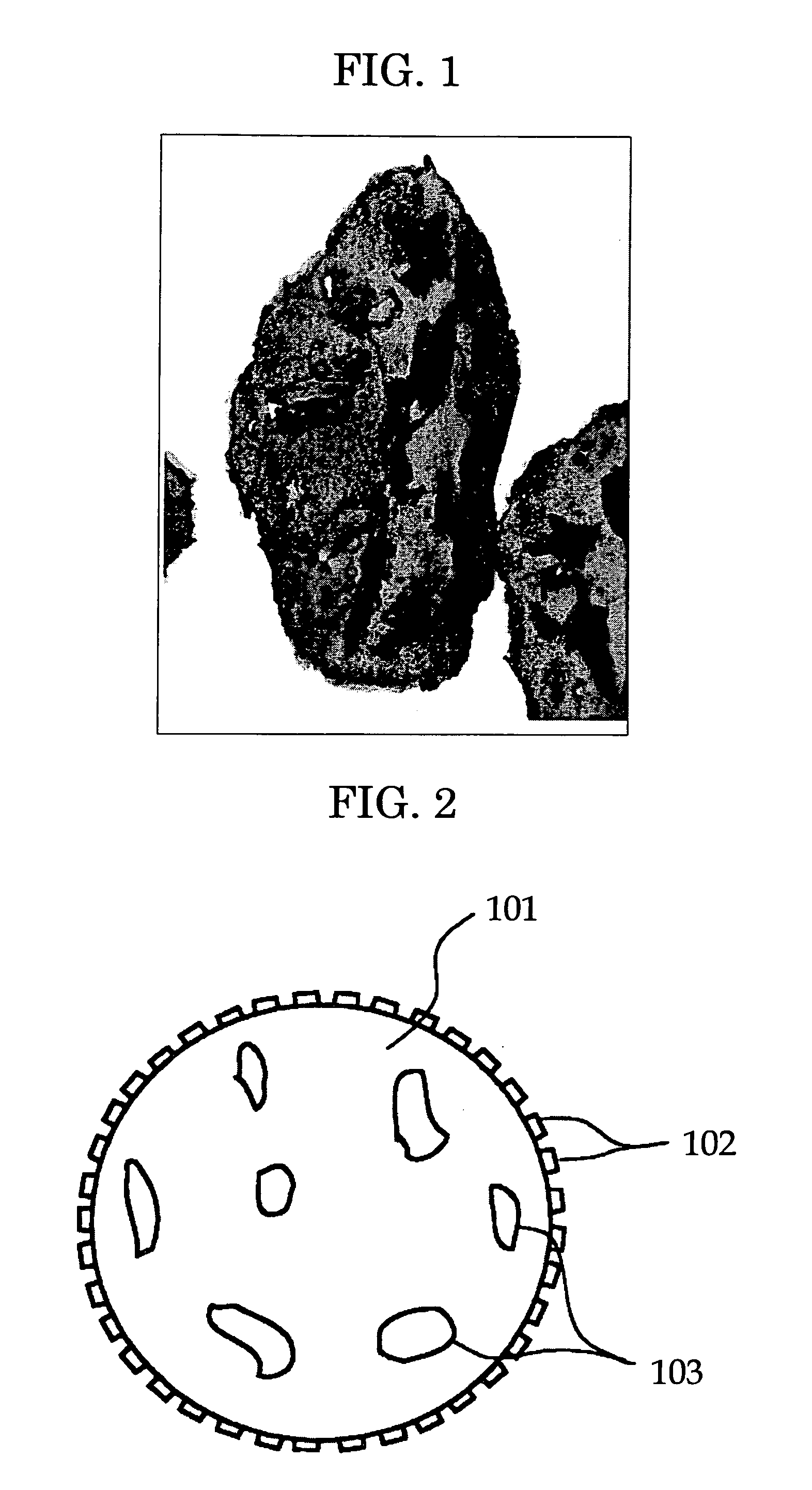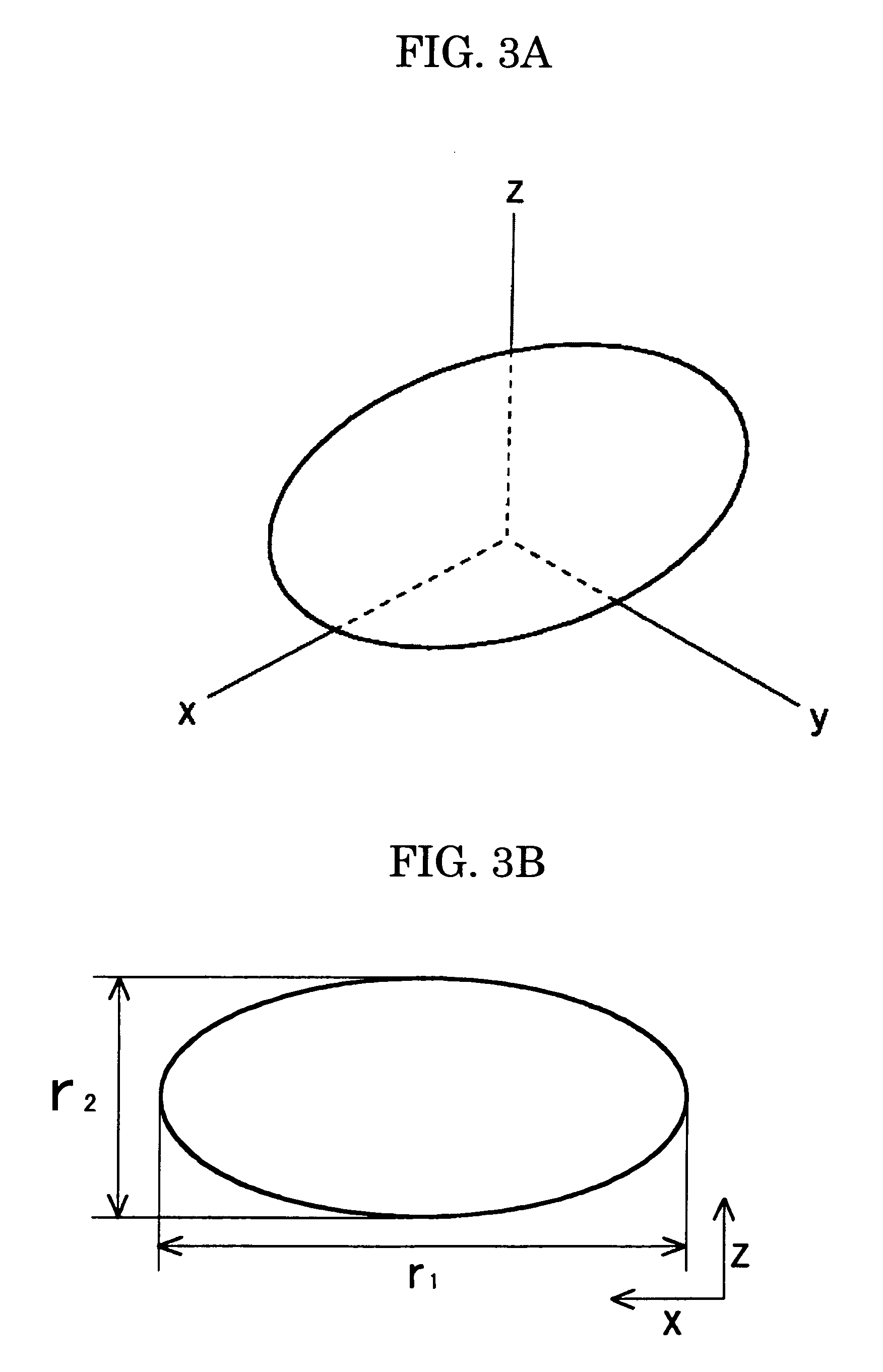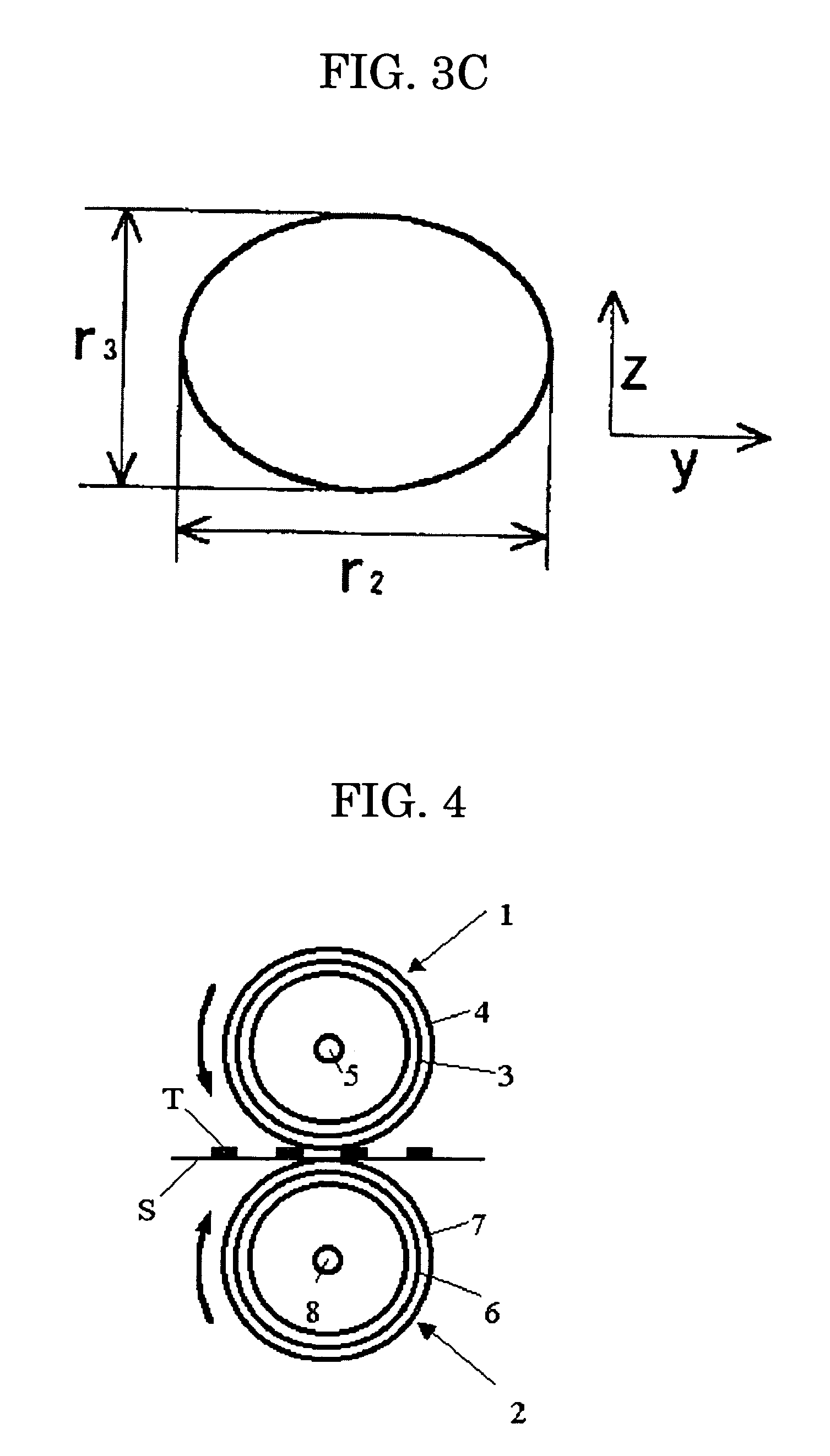Toner, developer, image forming apparatus, process cartridge and image forming process
a technology of image forming apparatus and developer, which is applied in the direction of developers, instruments, optics, etc., can solve the problems of excessive fused toner, complicated and large image forming apparatus, etc., and achieve excellent shelf-stability for a long time of toner, improve the blocking resistance of toner, and improve the hot-offset resistance.
- Summary
- Abstract
- Description
- Claims
- Application Information
AI Technical Summary
Benefits of technology
Problems solved by technology
Method used
Image
Examples
example 1
(Preparation of Organic Fine-Particle Emulsion)
[0224]Into a reactor equipped with a stirring rod and a thermometer were poured 683 parts of water, 11 parts of sodium salt of sulfuric acid ester of ethylene oxide adduct of methacrylic acid (trade name: Eleminol RS-30, manufactured by Sanyo Chemical Industries, Ltd.), 83 parts of styrene, 83 parts of methacrylic acid, 110 parts of butyl acrylate, and 1 part of ammonium persulfate; and the mixture was stirred at 3,800 rpm for 30 minutes to yield a white emulsion. The emulsion was heated to 75° C. and was allowed to react for 4 hours. The reaction mixture was further treated with 30 parts of a 1% aqueous solution of ammonium persulfate, was aged at 75° C. for 6 hours, thereby yielded an aqueous dispersion of vinyl resin i.e. a copolymer of styrene-methacrylic acid-butyl acrylate-sodium salt of sulfate ester of methacrylic acid-ethylene oxide adduct (hereinafter referring to as [Fine particles dispersion 1]). [Fine Particle Dispersion 1]...
example 2
[0241]A toner was produced and evaluated in the same manner as Example 1, except that the method for preparing the oil phase was changed as follows. The resultant [Toner 2] was shown in Table 1 as to the physical properties and in Table 2 as to the evaluations.
(Preparing of Oil Phase)
[0242]Into a reactor equipped with a stirring rod and a thermometer were poured 378 parts of [Lower Molecular-Mass Polyester 1], 100 parts of carnauba wax, and rice wax (in a mixing mass ratio of 7:3) and 947 parts of ethylacetate. The mixture was heated at 80° C. for 4 hours with stirring and was then cooled to 30° C. over 1 hour. The mixture was further treated with 500 parts of [Master Batch 1] and 500 parts of ethylacetate with stirring for 1 hour, thereby yielded [Material Solution 2].
[0243]Thereafter, 1324 parts of [Material Solution 2] was poured into a vessel, and the components therein were dispersed using a bead mill (Ultravisco-Mill, by Aimex Co.) at a liquid feeding speed of 1 kg / hr, a disc ...
example 3
[0244]A toner was produced and evaluated in the same manner as Example 1, except that the method for preparing the oil phase was changed as follows. The resultant [Toner 3] was shown in Table 1 as to the physical properties and in Table 2 as to the evaluations.
(Preparing of Oil Phase)
[0245]Into a reactor equipped with a stirring rod and a thermometer were poured 378 parts of [Lower Molecular-Mass Polyester 1], 400 parts of carnauba wax and 947 parts of ethylacetate. The mixture was heated at 80° C. for 4 hours with stirring and was then cooled to 30° C. over 1 hour. The mixture was further treated with 500 parts of [Master Batch 1] and 500 parts of ethylacetate with stirring for 2 hour, thereby yielded [Material Solution 3].
[0246]Thereafter, 1324 parts of [Material Solution 3] was poured into a vessel, and the components therein were dispersed using a bead mill (trade name: Ultra Viscomill, manufactured by by Aimex Co.) at a liquid feeding speed of 1 kg / hr, a disc rotation speed of ...
PUM
 Login to View More
Login to View More Abstract
Description
Claims
Application Information
 Login to View More
Login to View More - R&D
- Intellectual Property
- Life Sciences
- Materials
- Tech Scout
- Unparalleled Data Quality
- Higher Quality Content
- 60% Fewer Hallucinations
Browse by: Latest US Patents, China's latest patents, Technical Efficacy Thesaurus, Application Domain, Technology Topic, Popular Technical Reports.
© 2025 PatSnap. All rights reserved.Legal|Privacy policy|Modern Slavery Act Transparency Statement|Sitemap|About US| Contact US: help@patsnap.com



